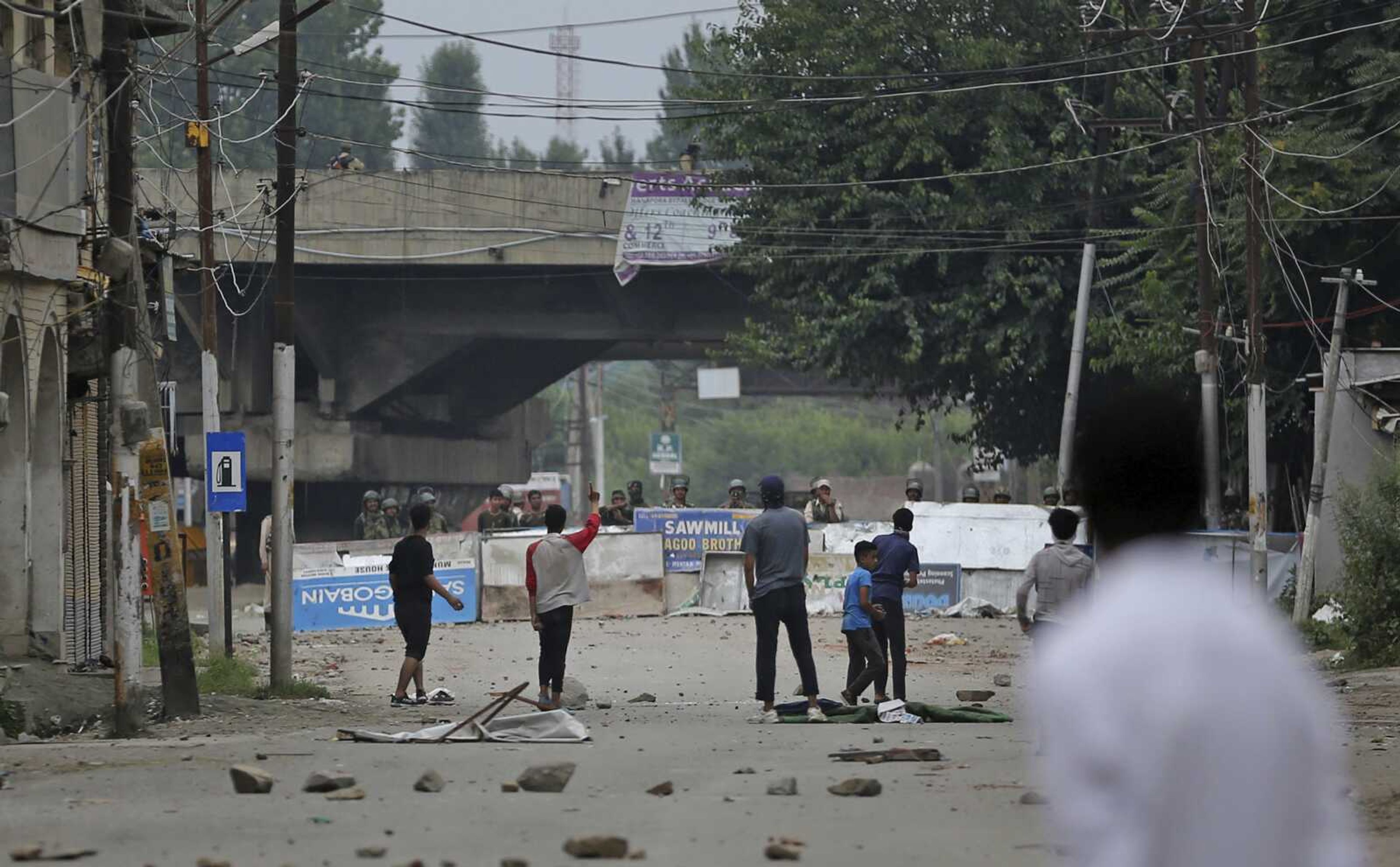NEW DELHI -- A strict curfew in Indian-administered Kashmir in effect for a fifth day was eased Friday to allow residents to pray at mosques, officials said, but some protests still broke out in the disputed region despite thousands of security forces in the streets as tensions remained high with neighboring Pakistan.
The predominantly Muslim area has been under the unprecedented lockdown and near-total communications blackout to prevent unrest and protests after India's Hindu nationalist-led government said Monday it was revoking Kashmir's special constitutional status and downgrading its statehood.
Thousands of Indian troops were deployed to the area, with more than 500 people arrested.
Kashmir is claimed in its entirety by both India and Pakistan and is divided between the archrivals. Rebels have been fighting New Delhi's rule for decades in the Indian-controlled portion, and most Kashmiri residents want either independence or a merger with Pakistan.
Dilbagh Singh, the region's police chief, said residents in its largest city of Srinagar were being allowed to pray at area-specific mosques.
The relaxing of the curfew in Srinagar was temporary, officials said. Friday prayers began at 12:37 p.m. in Srinagar and lasted for about 20 minutes. Television images from the city showed small groups praying in mosques.
"We see a sense of calm and normalcy. There has been no incident of violence," External Affairs Ministry spokesman Raveesh Kumar told reporters in New Delhi.
In Srinagar's Mochu neighborhood, a group of people trying to start an anti-government protest march threw stones at security forces who tried to stop them, and the paramilitary troops responded by firing tear gas and pellets to disperse the crowd. Two people suffered injuries that were not serious, a photographer said.
Other stone-throwing incidents were reported in Sopore in northern Kashmir, about 40 miles from Srinagar, but the situation was brought under control quickly by security forces, the Press Trust of India news agency quoted unidentified officials as saying.
While people were allowed to offer prayers in their local mosques, PTI reported there would be no Friday congregation at Srinagar's historic Jama Masjid, where thousands of Muslims pray every week. It also has been a center of regular anti-India protests after Friday prayers.
Authorities closely watched for any anti-India protests, which are expected to determine a further easing of restrictions for the Muslim festival of Eid al-Adha, which will be celebrated Monday.
In an address to the nation Thursday night, Prime Minister Narendra Modi promised Kashmiri people his government is making "sincere efforts to ensure the people in the region have no difficulties in celebrating Eid."
The restrictions on public movement throughout Kashmir have forced people to stay indoors and closed shops and even clinics. Modi said the situation in the region would return to normal gradually.
The move by India to change the status of Kashmir from statehood to a territory limits its autonomy and decision-making power and eliminates its right to its own constitution.
In New Delhi, several Muslims who prayed at the city's Jama Masjid mosque expressed their unhappiness with the Indian government's actions in Kashmir.
Aftab Uddin, a 49-year-old businessman, decried that the change has been brought about by force.
"If they had won their (the Kashmiris') hearts, then we would have stood with the government," he said. "This was a 70-year-old contract that the government squashed unconstitutionally. The government thinks that the situation will improve? Situation will not improve."
Connect with the Southeast Missourian Newsroom:
For corrections to this story or other insights for the editor, click here. To submit a letter to the editor, click here. To learn about the Southeast Missourian’s AI Policy, click here.







